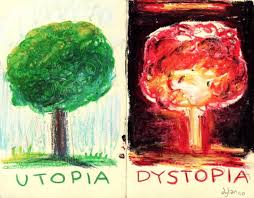|
Not that sort. The book sort. Novels. Etc.
“The Austrian horses glinted in the moonlight, their riders standing tall in the saddle, swords raised.” That’s by Scott Westerfield from the first in his Leviathan series. He puts down a few brief, stylistically old-fashioned / steampunkish brushstrokes to give you a sense of place, theme and tension. A war is in progress, and if that tickles your proverbial, that’s exactly what you’re going to get. “Quentin did a magic trick. Nobody noticed.” Lev Grossman kicks off his novel, The Magicians, with this little character flick, and follows it up with what I thought was a beautiful first few pages that efficiently paint time, place, character and the tension surrounding them. The first sentence hints at both the character and humour of the book. Nice. Efficient. “The smuggler held the bullet between thumb and forefinger, studying it in the weak light of the store room. He smiled sourly. ‘Just imagine,’ he said. ‘Imagine what this feels like, going through your head.’” I’m partial to this approach; Chris Wooding’s start to the first in his Ketty Jay series, Retribution Falls drops you straight into a life-and-death situation, in which the flawed hero has to extract himself and his companion. If your story is an adventure, start as you mean to go on. “Jasper Jones has come to my window. I don’t know why, but he has. Maybe he’s in trouble. Maybe he doesn’t have anywhere else to go. Either way, he’s just frightened the living shit out of me.” Craig Silvey’s start to his novel, Jasper Jones, hints at the ambiguous relationship between the narrator and the subject, is reasonably active – ie something potentially dangerous is happening – and creates intrigue. It’s no bad thing for a beginning to make the reader want to know what’s going to happen next. “I belong to Mister Splinter’s circus. I do the murders.” That’s my first line of an MS I'm working on, The Pricking of Thumbs. I wanted to establish a scenario, a sense of intrigue, and give a little something of the darkness of the novel. I’ve seen worse first lines. “I had just come to accept that my life would be ordinary when extraordinary things began to happen.” Ransom Riggs begins his tale, Miss Peregrine’s Home for Peculiar Children, with this first line. It hints at intrigue, but, if I’m being picky, it’s exposition rather than action, especially as he doesn’t immediately follow it up with an example of an ‘extraordinary thing’. “I was sitting outside the Commodore’s mansion, waiting for my brother Charlie to come out with news of the job.” Patrick De Witt starts The Sisters Brothers with a mild, unassuming sentence that sets up the brothers’ relationship – the narrator brother passive, the other brother the active leader – and gives a sense of intrigue; enough to read on to find out what the ‘job’ entails. “There are plenty would call her a slut for it.” Margo Lanaghan starts Tender Morsels with a first-person observation that hints at her narrator’s poor education and background, at the theme of illicit sex, and raises a certain intrigue about what ‘it’ might be. It's also dark, which accurately heralds Lanaghan's dark, twisted and surreal novel. I haven’t touched on the vast non-YA bulk of my library, but if we’re looking at contemporary, commercial writing, then we’ve got a clear pattern forming. Signal clearly to the reader that they’ve begun a story that will go somewhere interesting, raise intrigue and perhaps expectations, hint at the flavour or style of the storytelling, say something about the character of the narrator or protagonist, hint at the world they’re in, and don’t waste a word. Every good story starts with a question.
0 Comments
Leave a Reply. |
Reviews & stuff
Archives
July 2022
Categories
|


 RSS Feed
RSS Feed
